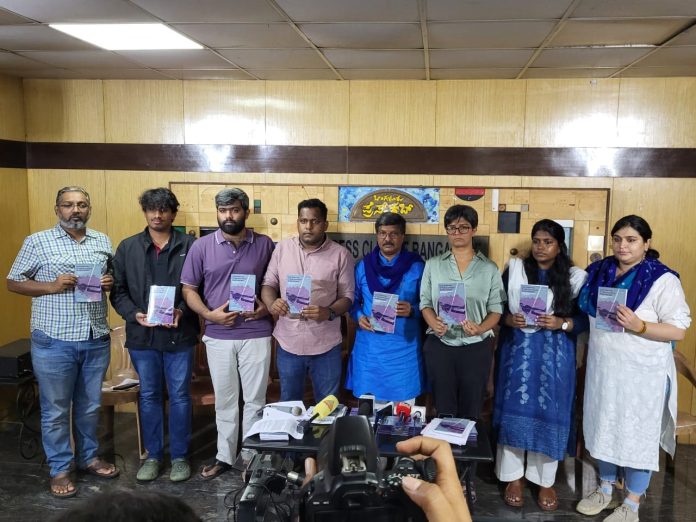Mangaluru— A fact-finding report released by a coalition of civil rights organisations has sharply criticised the handling of the mob lynching of Mohammed Ashraf in Kudupu, Mangaluru, terming the incident a “betrayal of the promise of the Constitution” and highlighting police apathy, procedural failures, and systemic bias, reported the Hindu.
Titled “Lost Fraternity: A Mob Lynching in Broad Daylight”, the report was compiled jointly by the People’s Union for Civil Liberties – Karnataka (PUCL), the All India Lawyers Association for Justice – Karnataka (AILAJ), and the Association for Protection of Civil Rights – Karnataka (APCR). The findings were presented at the Mangaluru Press Club in the presence of activists, legal experts, and Ashraf’s grieving brother, Jabbar.
Ashraf, a scrap collector originally from Kottakkal, Kerala, and residing with his family in Wayanad, was brutally assaulted on April 27 near the Batra Kallurthi temple while watching a cricket match. Witnesses reported that the violence erupted after Ashraf drank water placed by a nearby group. He was soon attacked by a mob allegedly led by Ravindra Nayak, husband of BJP corporator Sangeetha Nayak, and one of the accused, Sachin T.
Activists condemned the lack of political and administrative accountability. “No elected representative has visited Ashraf’s family. The rule of law has collapsed,” said Mavalli Shankar of the Dalit Sangharsha Samiti (Ambedkarvaada), supporting Jabbar’s emotional plea: “Let this be the last lynching.”
Ashwini KP, United Nations Special Rapporteur on Contemporary Forms of Racism, drew attention to India’s obligations under international law, including the International Convention on the Elimination of All Forms of Racial Discrimination. “The media’s communal narrative, especially post-Pahalgam, has fuelled hatred. Law enforcement has become complicit,” she remarked.
Maitreyi Krishnan, president of AILAJ, called the incident not just a murder but a hate crime, stressing that it violated the 2018 Supreme Court ruling in the Tehseen Poonawalla case, which mandates strict police protocols for mob lynching cases. “The FIR was delayed, and Supreme Court guidelines were ignored. Officers must face disciplinary action,” she demanded.
Advocate Vinay Sreenivasa highlighted the legal mishandling of the case. “Accused individuals received bail due to procedural lapses. The state appears keener on introducing new hate speech laws than enforcing the existing ones,” he said, urging for a broader civil society-state dialogue to strengthen law and order mechanisms.
Mohammed Hayyan from the Students Islamic Organisation (SIO) Karnataka expressed deep concern over the police’s inadequate response and called for public mobilisation to seek justice for Ashraf.
Speakers unanimously demanded that the investigation be transferred to the Criminal Investigation Department (CID), a special public prosecutor be appointed, and the family be compensated under existing victim relief schemes.
The report concludes with a grim reflection on the deteriorating communal atmosphere in Dakshina Kannada. “The recent spate of murders has torn the social fabric of the district, disrupting relationships and economic life. It is now imperative for the state and civil society to bridge the divide,” the report states.
It also calls upon the police and administration to take proactive steps in restoring public trust and preventing further deterioration, urging society at large to come together in grief and solidarity to rebuild communal harmony.




